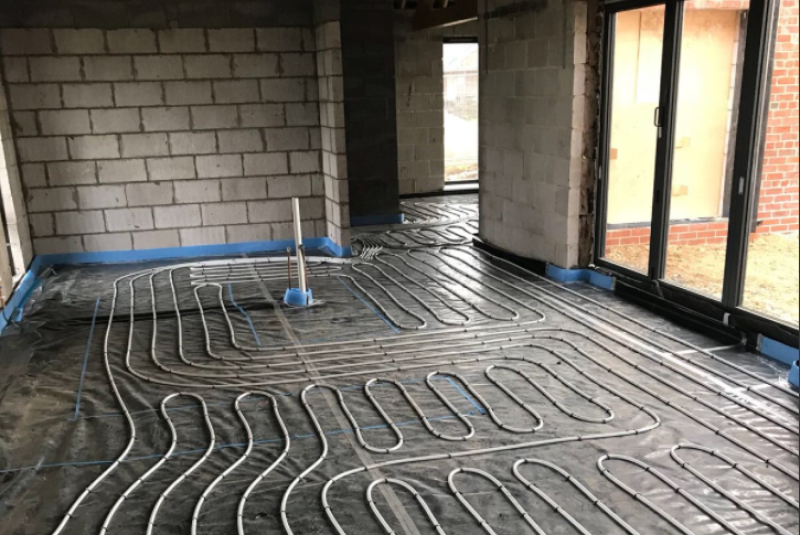
The launch of the Green Homes Grant scheme in September 2020 opens up new opportunities – and not just for homeowners and landlords. Mike Riseley, UK Sales Director at RWC, offers his view on a step in the right direction for the plumbing and heating community.
It’s news to nobody that conventional gas heating is in the final stages of its long life. 2025 has been earmarked as the year when gas boilers will be banned from new-build homes, as the UK Government ramps up its activity to combat climate change by ushering in a new age of low-carbon heat pump technology.
Against this backdrop, we’ve seen some very good news. The Green Homes Grant scheme, which runs until 3 March 2022, will not just drive forward sustainability, but will open up new opportunities for underfloor heating (UFH). It would therefore be wise for the plumbing and heating community to start realising these opportunities today.
The rise of UFH in a low-carbon future
Climate change is a very real threat to civilisation. Every industry – every sector – needs to play its part. None more so than ours. There’s a hugely ambitious target of net-zero emissions by 2050, and the move towards renewable energy-powered heating solutions, like ground source heat pumps (GSHPs) and air source heat pumps (ASHPs), is evidence that we all share an ambition to do our individual bit. But, in practice, we need to ensure the infrastructure is in place to support this move.
This comes in the form of the appliances and systems that transfer heat to the wider building. For decades, we’ve relied on convention and convection – from gas boiler to radiator. But, thermally speaking, the numbers tell the real story. Through conventional gas boilers, traditional convection radiators require heat at 70-80°C to work effectively. Meanwhile, UFH systems require 35-40°C to heat up the pipework and effectively transfer heat into the room – all while removing the need for pipework and radiators from view. Which is, evidently, another source of comfort by giving more interior space for the homeowner.
Of course, the requirements to implement this technology are dependent on cost and feasibility. This is why the Green Homes Grant is so important, as it’s a real step forward to make the necessary changes toward a more sustainable, eco-conscious future. At RWC, we certainly welcome this. However, just as vital to making heat pump and UFH technology a commonplace reality is the need to plan, prepare and train for a greener future.
Preparation is paramount
It’s no bold claim to say that UFH projects will soon become overwhelmingly popular. But, as a revolution fast approaches the heating industry, preparing for its far-reaching changes is vital.
UFH has been around for years, even if many contractors have not yet explored it. Everyone in the industry now needs to pull together – practitioners and merchants alike – to ready our supply chain for the influx in demand, and ensure installers have everything they need to transform Britain’s heating infrastructure and behaviours.
Even beyond availability and supplies, we have a longer-term task to upskill our industry for a very different age. Much has been made of the skills gap in our sector, for example. We need to not only attract the next wave of installers, but also put in place the face-to-face support, training, apprenticeships, CPDs and systems that ensure they are perfectly aligned to use these new heating technologies.
This is something we’re already working to at RWC, in the full knowledge that the Green Homes Grant, the switch to heat pump technology, and the surge in demand for UFH will become dominant trends in the UK. Any fundamental shift in any industry can be hard to pre-empt, if not to actively manage – but it should always be easy being green.
For more information on RWC, please visit www.rwc.com.









